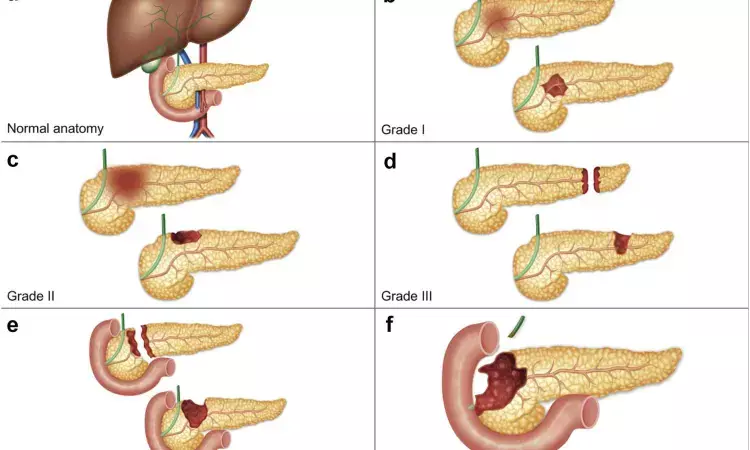- Home
- Medical news & Guidelines
- Anesthesiology
- Cardiology and CTVS
- Critical Care
- Dentistry
- Dermatology
- Diabetes and Endocrinology
- ENT
- Gastroenterology
- Medicine
- Nephrology
- Neurology
- Obstretics-Gynaecology
- Oncology
- Ophthalmology
- Orthopaedics
- Pediatrics-Neonatology
- Psychiatry
- Pulmonology
- Radiology
- Surgery
- Urology
- Laboratory Medicine
- Diet
- Nursing
- Paramedical
- Physiotherapy
- Health news
- Fact Check
- Bone Health Fact Check
- Brain Health Fact Check
- Cancer Related Fact Check
- Child Care Fact Check
- Dental and oral health fact check
- Diabetes and metabolic health fact check
- Diet and Nutrition Fact Check
- Eye and ENT Care Fact Check
- Fitness fact check
- Gut health fact check
- Heart health fact check
- Kidney health fact check
- Medical education fact check
- Men's health fact check
- Respiratory fact check
- Skin and hair care fact check
- Vaccine and Immunization fact check
- Women's health fact check
- AYUSH
- State News
- Andaman and Nicobar Islands
- Andhra Pradesh
- Arunachal Pradesh
- Assam
- Bihar
- Chandigarh
- Chattisgarh
- Dadra and Nagar Haveli
- Daman and Diu
- Delhi
- Goa
- Gujarat
- Haryana
- Himachal Pradesh
- Jammu & Kashmir
- Jharkhand
- Karnataka
- Kerala
- Ladakh
- Lakshadweep
- Madhya Pradesh
- Maharashtra
- Manipur
- Meghalaya
- Mizoram
- Nagaland
- Odisha
- Puducherry
- Punjab
- Rajasthan
- Sikkim
- Tamil Nadu
- Telangana
- Tripura
- Uttar Pradesh
- Uttrakhand
- West Bengal
- Medical Education
- Industry
ERCP Effective for traumatic pancreatic injury Management Across Age Groups, suggests study

Researchers have found in a new study that endoscopic Retrograde Cholangiopancreatography (ERCP) is a safe and effective approach for treating traumatic pancreatic injury (TPI) in both pediatric and adult populations. It demonstrates high success in preserving ductal integrity and minimising complications. However, further prospective research is essential to establish standardised treatment protocols.
Traumatic pancreatic injuries (TPI) are rare, critical complications increasingly managed by minimally invasive Endoscopic Retrograde Cholangiopancreatography (ERCP). We systematically reviewed and meta-analyzed ERCP’s efficacy and safety for TPI regarding pancreatic duct integrity and clinical outcomes in diverse populations.
PubMed, Scopus, Cochrane Library, and Web of Science were searched (2000–2024) for studies reporting on ERCP for TPI.
Primary outcomes were pancreatic duct integrity and complications; secondary outcomes included mortality and hospital stay. Pediatric and adult populations were compared via subgroup analysis. Publication bias was assessed.
Results: Fifteen studies comprising 1,823 patients (54% male, 32% pediatric) were included in the meta-analysis. ERCP demonstrated a pooled clinical success rate of 89% (95% CI: 83–93%) and significantly improved pancreatic duct integrity (OR for pancreatic duct integrity: 9.17, 95% CI: 6.73–12.49). Complication rates ranged from 4 to 17%, with pancreatitis and bleeding being the most common adverse events. Mortality rates were low (3–5%), and ERCP significantly reduced hospital stay by an average of 3.1 days compared to surgical interventions.
Pediatric patients had slightly lower success rates (OR: 6.73, 95% CI: 4.01–11.31) compared to adults (OR: 10.87, 95% CI: 7.40–15.98). ERCP is an effective and safe modality for managing TPI in both pediatric and adult patients, yielding high success rates in maintaining ductal integrity and reducing complications, although interpretation requires caution due to potential publication bias. Further prospective studies are required to optimize standardized protocols.
Reference:
Karpuzcu, H.C., Erdoğan, Ç. The clinical efficacy and safety of ERCP in traumatic pancreatic injuries: a systematic review and meta-analysis. World J Emerg Surg 20, 52 (2025). https://doi.org/10.1186/s13017-025-00631-5
Dr. Shravani Dali has completed her BDS from Pravara institute of medical sciences, loni. Following which she extensively worked in the healthcare sector for 2+ years. She has been actively involved in writing blogs in field of health and wellness. Currently she is pursuing her Masters of public health-health administration from Tata institute of social sciences. She can be contacted at editorial@medicaldialogues.in.
Dr Kamal Kant Kohli-MBBS, DTCD- a chest specialist with more than 30 years of practice and a flair for writing clinical articles, Dr Kamal Kant Kohli joined Medical Dialogues as a Chief Editor of Medical News. Besides writing articles, as an editor, he proofreads and verifies all the medical content published on Medical Dialogues including those coming from journals, studies,medical conferences,guidelines etc. Email: drkohli@medicaldialogues.in. Contact no. 011-43720751


